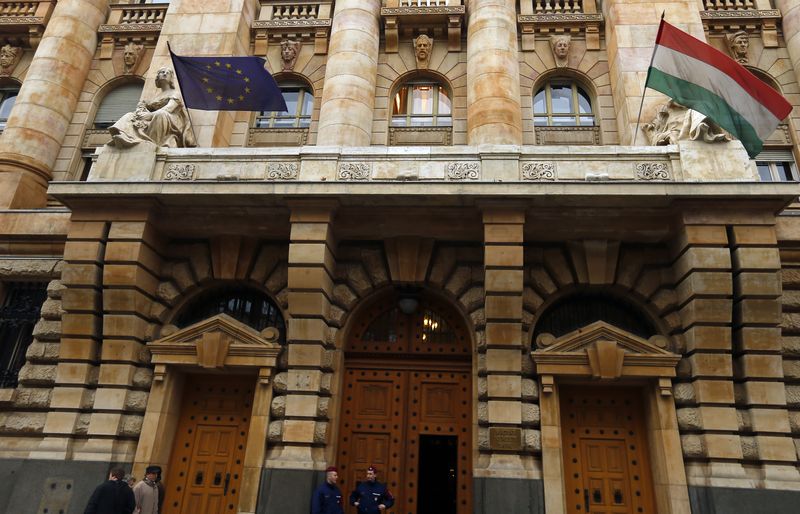By Gergely Szakacs
BUDAPEST (Reuters) - The National Bank of Hungary is expected to cut its base rate by another 75 basis points to 11.5% next Tuesday, a Reuters poll showed, with the bank under pressure from Prime Minister Viktor Orban's government to reduce rates more sharply.
With the European Union's highest inflation rate declining, from a high of 25% in the first quarter to a lower-than-forecast 9.9% last month, the NBH has cut borrowing costs by a combined 575 bps since May to 12.25% - still the EU's highest benchmark.
Hungary eked out its first quarterly growth in a year in the third quarter, data showed on Tuesday, as central Europe's economies scrabble out of an inflation-induced downturn amid the war in neighbouring Ukraine.
The weakness of the economy has led to repeated calls from Economic Development Minister Marton Nagy, a former central banker, for the NBH to cut rates more sharply. On Friday, Nagy said the bank's rate policy "seriously damages" the economy.
Despite those calls, the bank is likely to continue easing next week at the same pace as last month's 75 bps cut, a Nov. 13-17 Reuters survey of 16 economists showed.
"We expect the NBH to proceed with easing monetary policy, lowering its base rate by 75bp to 11.5% at its upcoming November 21 meeting," economists at Morgan Stanley (NYSE:MS) said in a note.
"We still see risks to our rates call as being skewed towards a speedier 100bp of rate cuts per month in 1Q24, on the back of weaker-than-expected inflation dynamics."
Financial news website portfolio.hu cited Deputy Governor Barnabas Virag as saying on Thursday that data showing inflation easing to an annual 9.9% in October and lower oil prices would allow the bank to continue rate cuts at a 75 bps clip next week.
Virag was also quoted as saying that the Hungarian base rate could fall below, but stay close to, 11% by the end of the year, when inflation is seen at around 7%.

Another 75 bps cut at the December meeting would bring the base rate to 10.75%, in line with the survey's median projection, and within a range forecast by rate-setter Gyula Pleschinger in an interview with Reuters in September.
Despite the retreat in headline inflation, core inflation remained in double digits in October, while services prices rose by an annual 13.2%, indicating strong underlying pressures amid a recovery in real wages.